Water Sector Corruption Impedes Sustainable Development
Report asserts universal access to water and sanitation requires more transparency and accountability.
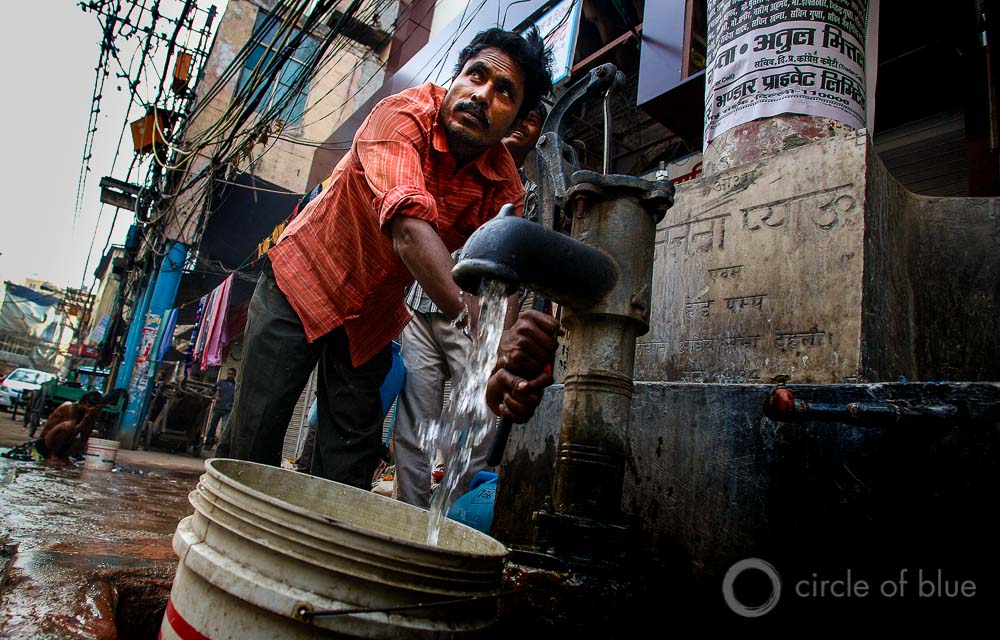
A survey of 1,500 households in Delhi, India found that nearly 45 percent of the households believed that the level of corruption in water supply services had gone up during the previous year, with 37 percent saying it had remained the same. Photo © J. Carl Ganter / Circle of Blue
By Codi Kozacek
Circle of Blue
Clean, safe water will remain out of reach for millions of people and billions of investment dollars will be lost if government leaders, utilities, and investors do not stem corruption in the global water industry, according to a report released last month by the Berlin-based Water Integrity Network (WIN).
Awareness about the misconduct that affects water delivery systems, infrastructure projects, and policy has grown over the past decade, but there is little indication that levels of corruption have declined, the report found. Moreover, corruption occurs at all levels of government and in private businesses. It can take many forms, from bribes paid to acquire water service, to lax enforcement of pollution laws, to the misuse of funds earmarked for water system improvements.
The Water Integrity Network study arrives as the world’s attention to the government dysfunction produced by corruption grows keener. A trove of documents obtained from a Panama-based law firm describes the labyrinth of networks that government leaders and the wealthy use to hide their fortunes, avoid taxes, and to undertake, in many instances, illegal activities. The documents, that have come to be called the “Panama Papers,” tell a story of bribes and payoffs hidden in untaxed offshore accounts.
In an unrelated event, South Africa President Jacob Zuma faces impeachment hearings following a ruling last week by that nation’s highest court that he violated constitutional provisions as a result of actions that stemmed from his secret acceptance of millions of rands to renovate his private home.
Corruption at the highest levels of government also is under investigation in India, Russia, and China.
Without reducing levels of corruption, it will be nearly impossible to meet the United Nations Sustainable Development Goal to provide universal and equitable access to safe and affordable drinking water by 2030.
Much is at stake in government operations, including those centered around water supply and water quality. Without reducing levels of corruption, it will be nearly impossible to meet the United Nations Sustainable Development Goal to provide universal and equitable access to safe and affordable drinking water by 2030, the report concluded. Some 663 million people globally did not have access to a safe drinking water source in 2015.
Growing populations, increasing levels of water scarcity, and competition for water resources from energy, agricultural, and industrial sectors stress existing water systems and require proactive, effective responses from government leaders.
Providing drinking water to all, as well as irrigation, hydropower, and other water-related development improvements could cost the world between $US 1.25 trillion and $US 2.25 trillion per year over 20 years, according to a 2013 United Nations study.
Corruption undermines both the investments and policies that aim to improve water access and management. For every 10 percent of investment in water projects that is lost to corruption, annual losses to the water sector overall can exceed $US 75 billion, the WIN report found. It also noted the risk of corruption in decision-making processes can lead to spending money on the wrong projects.
“A major area of concern is in the planning and construction of infrastructure, much of which is vitally needed to provide water services, irrigation and hydropower for millions of people,” the authors wrote. “However, small- and large-scale projects alike require careful scrutiny in their planning and delivery. In some cases data has been misused to justify the construction of prestige projects that never achieve their aims or value for money. In other cases communities displaced by large-scale dams have been cheated out of their compensation. In a project in Pakistan, it is estimated that 80 per cent of compensation went to bogus owners.”
Some international development organizations and businesses have already taken steps to reduce corruption in the projects that they finance or construct. But policies do not always translate into results on the ground. To bridge the gap, the report offers three recommendations:
1. Coordinate and involve all branches of civil society, the private sector, legislators, regulators, the judicial system, and prominent political and institutional leaders to reform water governance and commit to reducing corruption.
2. Collect data on the extent of existing corruption, as well as on the economic and social consequences of that corruption.
3. Develop transparency, hold decision makers accountable, include all relevant parties in decisions about water projects, and strengthen laws and regulations against corruption.
“We now know what the issues are in relation to corruption in the water sector,” the report concludes. “These need to be addressed systematically, politically, professionally – and urgently. The time has come to act. We must no longer allow corruption to flourish and integrity to be undermined.”
A news correspondent for Circle of Blue based out of Hawaii. She writes The Stream, Circle of Blue’s daily digest of international water news trends. Her interests include food security, ecology and the Great Lakes.
Contact Codi Kozacek

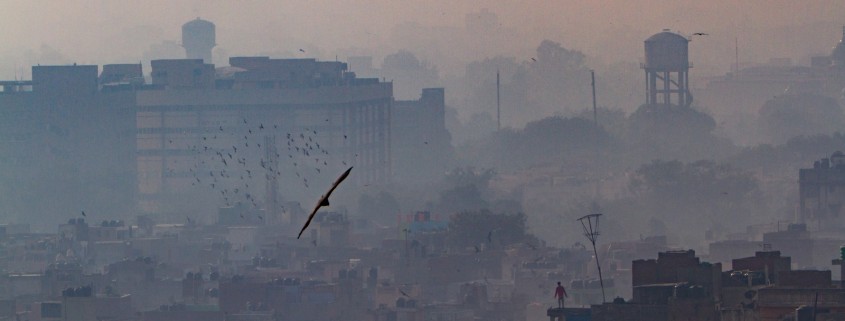

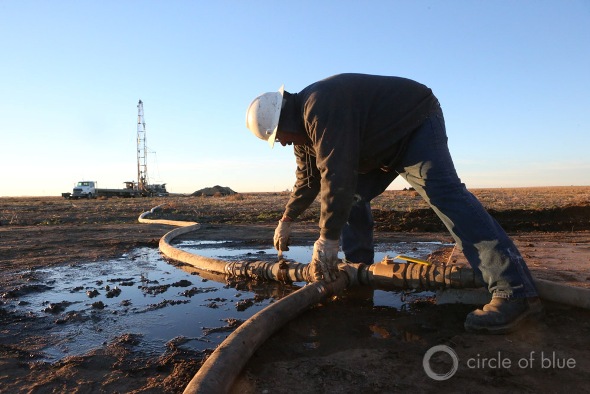
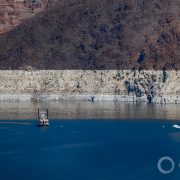

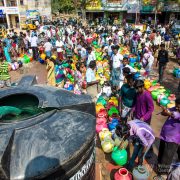

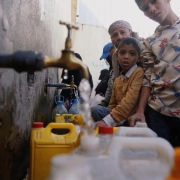



Trackbacks & Pingbacks
[…] el sector del agua y el saneamiento, donde los riesgos de incurrir en prácticas corruptas son más altos, existen importantes incentivos para implementar procesos que mejoren el desempeño de los […]
Leave a Reply
Want to join the discussion?Feel free to contribute!